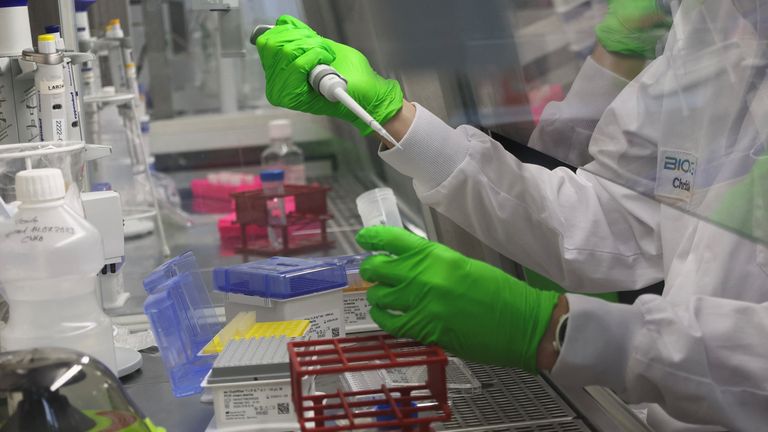A new vaccine treatment for the deadly skin cancer melanoma has an overall survival rate of 96%, a new study has found.
Moderna and their partner Merck and Co announced their cancer vaccine, in combination with blockbuster cancer therapy Keytruda, improved survival and showed durable efficacy.
The 157-patient trial showed that after two-and-a-half years, melanoma patients that had received the cancer vaccine combination had an overall survival rate of 96%, compared to 90.2% with Keytruda alone.
About 75% of the patients on the vaccine combination had a recurrence-free survival, compared to 55.6% on Keytruda alone.
A December report found there was a 49% reduction in the risk of recurrence or death among patients who were on the vaccine combination versus Keytruda alone, with a median follow-up of nearly three years.
Merck and Moderna, which have been collaborating since 2016, are also conducting a late-stage study of their vaccine and Keytruda combination.
Its collaboration is one of the several in the industry that are combining powerful drugs that use the immune system for targeting cancer with the mRNA vaccine technology, which carries instructions for cells to make specific protein for different people.
Professor Georgina Long, co-director of the Melanoma Institute Australia, said: “This has the power to transform cancer treatments across the world.
“The trial results are transformative for not only the treatment of melanoma, but they set the stage and benchmark for other cancers.
“This phase III trial is the first of its kind and is one of the single biggest developments, not only in melanoma, but the whole cancer field,” Prof Long added.
“Our next step is to refine who gets what immunotherapy before surgery, as some patients will need combination and others will not,” she said.
The NHS is understood to have also been trialling the vaccine.
Melanoma affects more than 150,000 people a year globally, according to figures from World Cancer Research Fund International.

